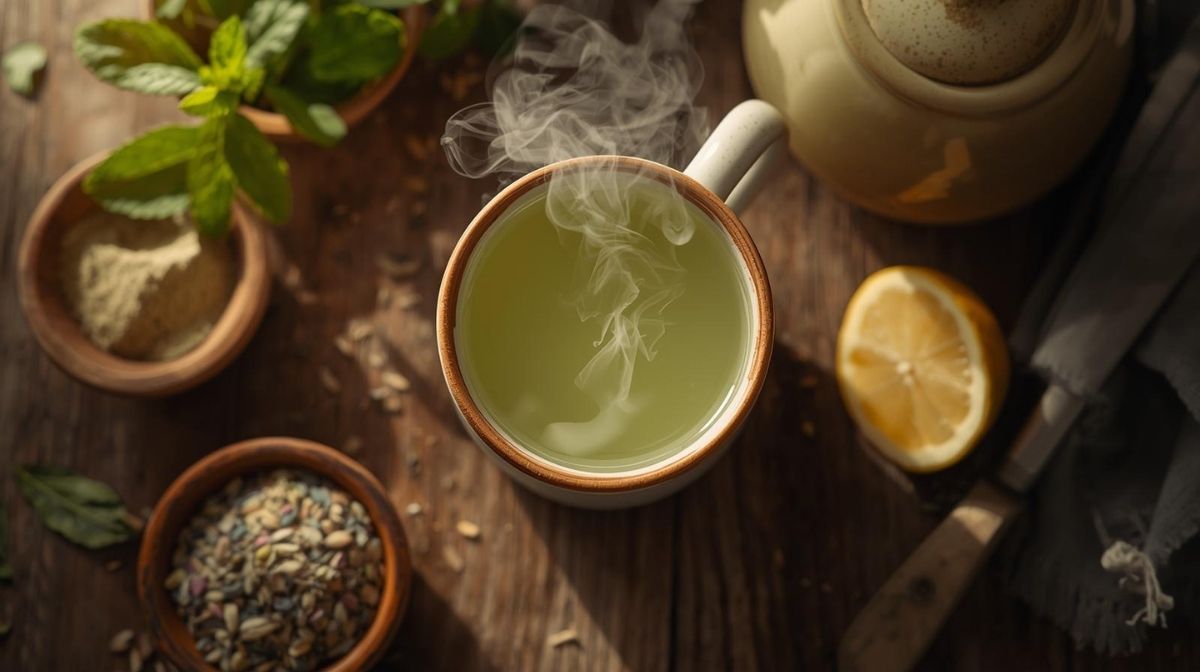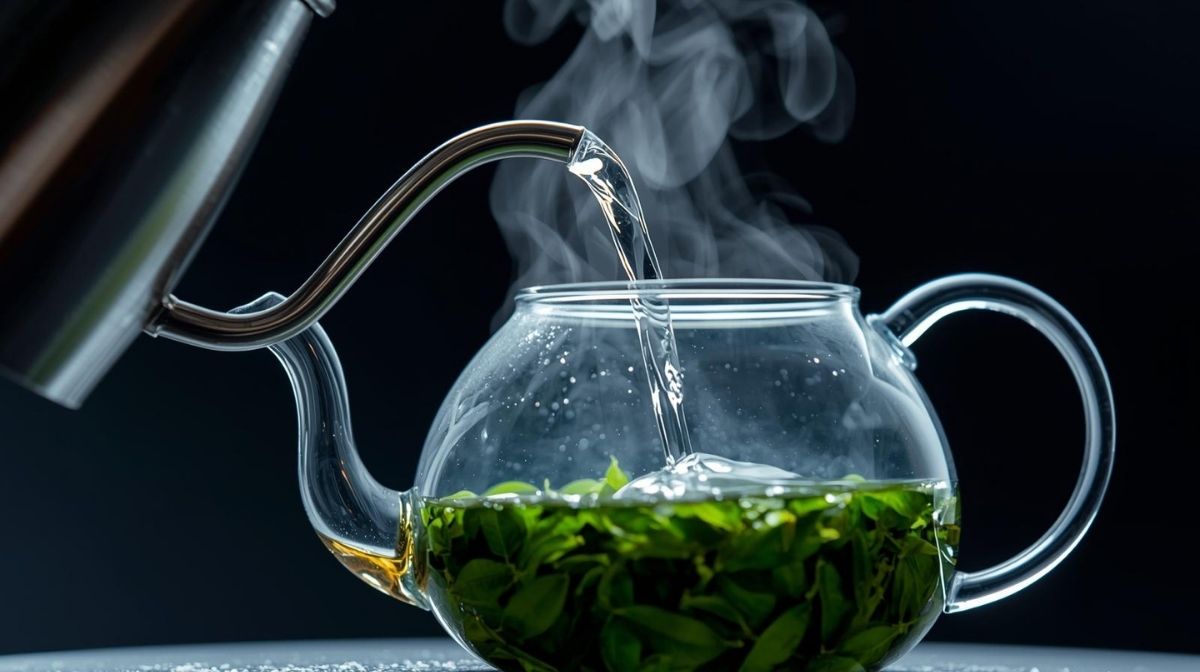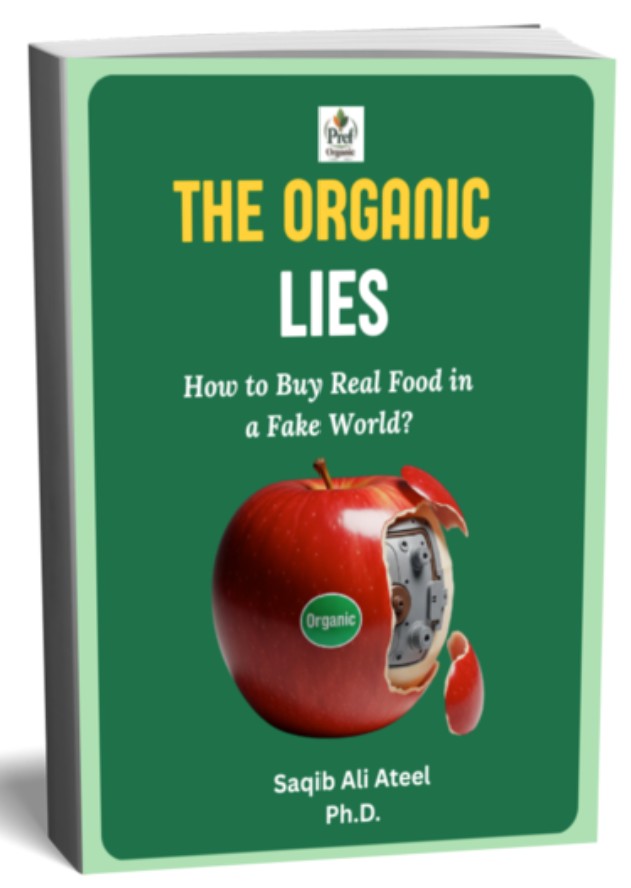🍵 The Ultimate Guide to
Moringa Tea: How to Brew the Perfect Cup for Maximum Benefits
You’ve likely heard the buzz about moringa, the "miracle tree," and you're wondering if moringa tea is the right path for you. Amidst a global rise in demand for natural, plant-based wellness, you’re seeking clarity. You’ve done your initial research, and now you’re standing at a crossroads, looking at powders, capsules, and tea leaves, asking: "Is tea a good way to get the benefits? How do I make it right? And honestly, will it taste okay?"
I get it completely. As a PhD student in agriculture with hands-on farming experience, I've spent years connecting the science of plants with the practical art of using them to nourish my family. You're not just looking for another supplement; you're looking for a sustainable, enjoyable ritual that protects your health and brings a moment of calm to your busy life.
You’ve come to the right place. This isn't just a list of instructions. This is your definitive guide to transforming uncertainty into confidence. We'll walk through exactly how to make moringa tea perfectly, explore the unique moringa tea benefits, and turn this powerful green leaf into a delicious, empowering part of your daily routine.
PhD-Backed Guide: Brewing Potent Moringa Tea
- 🌡️ Simmer, Don't Boil: To preserve heat-sensitive vitamins and polyphenols, use water around 200°F (93°C) rather than a full rolling boil.
- ⏱️ The 5-Minute Sweet Spot: Steep leaves for 5-7 minutes to extract maximum nutrients. Unlike green tea, moringa is low in tannins and won't turn bitter if left longer.
- 🍋 Fix the "Grassy" Taste: If the earthy flavor is too strong, easily brighten the brew by adding fresh lemon, mint leaves, or a slice of ginger.
- 🛌 Sleep & Stress Support: Naturally caffeine-free, this tea acts as an anti-inflammatory shield and a calming evening ritual to support restful sleep.
- 🍵 Choose Your Form: Use powder for a nutrient-dense whole-leaf boost (fiber included) or tea leaves for a lighter, antioxidant-rich infusion.
The "Practical Verdict": Your Quick Brew Guide ✅
Let's get straight to it. Brewing moringa tea is simple, and
you likely already have everything you need. Here are the three most common
methods.
Method 1: Using Dried or Fresh Moringa Leaves
This is the traditionalist's choice, offering a pure, vibrant flavor.
1. Measure: Use about 1-2 teaspoons of dried leaves or a 1/2 cup of fresh, rinsed leaves per cup (8 oz) of water.
2. Heat Water: Bring your water to a strong simmer, but not a full, rolling boil (around 200°F or 93°C is perfect).
3. Steep: Pour the hot water over the leaves in an infuser or pot. Let it steep for 4-7 minutes.
4. Serve: Strain the leaves and enjoy your tea immediately.
Method 2: Using Moringa Powder
This is a potent and versatile method, perfect for a quick, nutrient-dense cup.
1. Make a Paste: Add 1/2 to 1 teaspoon of moringa powder to your mug. Add a splash of hot water and stir vigorously to create a smooth, lump-free paste. This is the secret to a non-gritty tea!
2. Add Water: Slowly pour the rest of your hot (not boiling) water into the mug, stirring as you go.
3. Steep & Settle: Let the tea steep for 3-5 minutes. It's normal for fine sediment to settle at the bottom.
4. Enjoy: Stir once more before sipping.
Method 3: Using Moringa Tea Bags
The ultimate in convenience, perfect for busy days or travel.
1. Place Bag: Put one moringa tea bag in your favorite mug.
2. Add Water: Pour 12-16 oz of hot water over the bag.
3. Steep: Let it steep for 5-10 minutes. Moringa is very forgiving and won't get bitter like black or green tea, so a longer steep is fine.
4. Serve: Remove the bag and enjoy.
 While tea bags offer convenience, using whole dried leaves or powder provides a more versatile nutrient profile, allowing you to choose between a light infusion or a fiber-rich whole-leaf consumption.
While tea bags offer convenience, using whole dried leaves or powder provides a more versatile nutrient profile, allowing you to choose between a light infusion or a fiber-rich whole-leaf consumption.The "Insider's Proof": The PhD Farmer's Brewing
Secrets 🧑🌾
Now that you know the "how," let's talk about the "why."
Growing up on a farm taught me that how you handle a plant after harvest is just as important as how you grow it. The same is true for brewing tea. These simple techniques are rooted in science and designed to protect the delicate nutrients in the moringa leaves. In fact, scientific methods for industrial tea production focus on optimizing extraction temperatures and solvent ratios to maximize the concentration of beneficial polyphenols—and that's exactly what we're aiming to do in our own kitchens.
Water Temperature: The Secret to Preserving Nutrients 💡
You might be tempted to use boiling water, but from an agricultural science perspective, that’s a mistake. Many of moringa's most powerful compounds, like certain vitamins and polyphenols, are heat-sensitive. A full boil (212°F / 100°C) can actually degrade them, reducing the tea's potency.
The PhD Farmer's Tip: Aim for water that is just simmering, around 200°F (93°C). If you don't have a temperature-controlled kettle, simply bring the water to a boil and then let it sit for a minute before pouring. This small step protects the nutrients you’re working so hard to get.
Steeping Time: Balancing Potency and Flavor
Steeping is a gentle extraction process. Too short, and you get weak, greenish water. Too long with other teas, and you get a bitter cup. Luckily, moringa is different.
My hands-on experience shows that moringa is incredibly forgiving. It lacks the high levels of tannins found in black or green tea, so it rarely becomes bitter, even with a longer steep.
The PhD Farmer's Tip: A steeping time of 5-7 minutes is the sweet spot for extracting a rich profile of flavors and nutrients. If you prefer a milder taste, start with 3-4 minutes. For a stronger brew, feel free to go up to 10 minutes, especially with tea bags.
Leaves vs. Powder vs. Bags: A Friendly Comparison
Which form is best? The honest answer is: the one you'll use consistently.
- Potency: Moringa powder is the most concentrated form because you consume the entire ground leaf, including its fiber and fat-soluble vitamins. A moringa tea infusion, on the other hand, primarily extracts the water-soluble components, like minerals, B vitamins, Vitamin C, and many of the powerful antioxidant polyphenols. Research confirms that moringa tea infusions have significant mineral content and high antioxidant activity, making them a very potent choice.
- Convenience: Tea bags are the clear winner for ease and travel. Powder is incredibly versatile for lattes and smoothies. Loose leaves offer a pure, traditional experience.
Flavor Enhancement: Turning "Grassy" into
"Great" 🍋
Let's address the elephant in the room: the taste. Moringa has an earthy, vegetal flavor that some compare to spinach or matcha. If that’s not your cup of tea (pun intended!), don't worry. Its mild profile makes it a perfect canvas for other flavors.
The PhD Farmer's Tip: Balance the earthy notes with these simple additions:
- To Brighten: A squeeze of fresh lemon or orange cuts through the green notes beautifully.
- To Refresh: A few fresh mint leaves add a cooling, clean finish that is incredibly refreshing.
- To Warm: A few thin slices of ginger or a small piece of a cinnamon stick adds a warming, spicy complexity.
- To Sweeten: A small drizzle of raw honey or maple syrup can balance the flavor perfectly.
 For maximum potency, avoid using boiling water (212°F) which can degrade vitamins; instead, aim for a simmer around 200°F (93°C) to protect the heat-sensitive compounds.
For maximum potency, avoid using boiling water (212°F) which can degrade vitamins; instead, aim for a simmer around 200°F (93°C) to protect the heat-sensitive compounds.The "Confident Takeaway": Moringa Tea Benefits
& Your Wellness Basket 🧺
You came here wondering if moringa tea is "as good as" other forms. The answer is a resounding yes. It's a fantastic and effective way to incorporate this superfood into your life. Let's put it in your "basket" of healthy choices and look at the specific benefits.
What are the Moringa Tea Benefits? 🛡️
When you sip moringa tea, you're drinking a potent infusion of some of the plant's most protective compounds.
- A True Nutritional Powerhouse: Moringa's reputation as a tool against malnutrition is well-earned. Research published in resources like the International Journal of Phytotherapy Research confirms its incredible nutrient density. Gram for gram, its leaves contain more Vitamin C than oranges, more potassium than bananas, more calcium than milk, and more iron than spinach.
- Antioxidant & Anti-Inflammatory Shield: This is the core benefit of moringa tea. It's packed with a range of powerful antioxidants—including flavonoids, thiocarbamates, and isothiocyanates—that act like your body's personal security guards, neutralizing harmful free radicals and calming inflammation. This anti-inflammatory action is particularly protective for our vital organs, like the liver, and may help manage conditions like arthritis and asthma.
- A Calming Ritual for Stress & Sleep: In our hectic world, a calming evening ritual is priceless. Because moringa tea is naturally caffeine-free, it's the perfect drink to help you unwind before bed.1 The warm, soothing ritual can help calm your nervous system, support digestion, and prepare your body for a restful night's sleep.
- Gentle Support for Weight Management: While no tea is a magic weight-loss pill, moringa tea can be a powerful ally. Its compounds, particularly chlorogenic acid, have been shown to help balance blood sugar levels.1 Stable blood sugar reduces cravings and supports a healthy metabolism, making it easier to maintain a healthy weight.
Is Moringa Tea as Good as Powder or Capsules?
This is a great question. Think of it like eating an orange versus drinking orange juice.
- Moringa Powder and Moringa Capsules give you the whole leaf—nutrients, fiber, and all. This is excellent for a concentrated dose and for digestive health.
- Moringa Tea is an infusion. It extracts the powerful water-soluble vitamins, minerals, and antioxidants into the water, giving you a light, hydrating, and easily absorbed dose of its protective benefits.
The verdict?
Both are excellent. Tea is a wonderful, enjoyable, and highly effective way to get many of moringa's key benefits. The best method is the one that fits seamlessly and happily into your life.
 Naturally caffeine-free and low in tannins, moringa tea serves as an ideal evening ritual to calm the nervous system and support restful sleep without the risk of bitterness.
Naturally caffeine-free and low in tannins, moringa tea serves as an ideal evening ritual to calm the nervous system and support restful sleep without the risk of bitterness.Your New Favorite Health Ritual ✨
You now have the knowledge of a farmer and the confidence of a seasoned tea brewer. You know that moringa tea is more than just a healthy drink—it's a simple, powerful ritual of self-care. It's a moment to pause, to nourish your body, and to invest in your long-term well-being.
By choosing the right form, using the proper temperature, and steeping for the perfect amount of time, you are honoring the plant and maximizing the incredible moringa benefits it has to offer.
So go ahead, brew your first confident cup. Make it a morning ritual to start your day with energy and clarity, or an evening one to find peace and rest. Welcome to the wonderful world of moringa tea.
To learn more about the full spectrum of Moringa's capabilities, explore our complete guide to Moringa Benefits. And if you're curious about other ways to use this amazing plant, check out our articles on Moringa Powder, Moringa Capsules, and even Moringa Flowers.
For Further Reading
For those who wish to delve deeper, these resources provide excellent, high-quality information on moringa's properties and benefits.
1. Healthline - "6 Benefits of Moringa Oleifera": A well-researched and accessible article that breaks down the science behind moringa's key health benefits, including its nutritional value and antioxidant power. This is a great source for understanding the evidence-based claims.
2. WebMD - "Moringa": This comprehensive overview from a trusted medical source details the uses, effectiveness, and crucial safety information for moringa. It's an essential read for anyone considering adding a new supplement to their routine.
3. Johns Hopkins University - Research on Moringa: The work of researchers like Dr. Jed W. Fahey at Johns Hopkins has been pivotal in understanding moringa's powerful compounds, particularly its anticancer and antibiotic properties. Their scientific validation lends significant credibility to the plant's traditional uses.

Meet Saqib
Saqib Ali Ateel is a PhD Scholar by training and a "student of the soil" by nature. He combines deep research, hands-on farming wisdom, and agricultural systems supervision to reveal what’s really on your plate. His mission is simple: to help your family navigate the food industry's complexity so you can eat cleaner, safer, and smarter.
